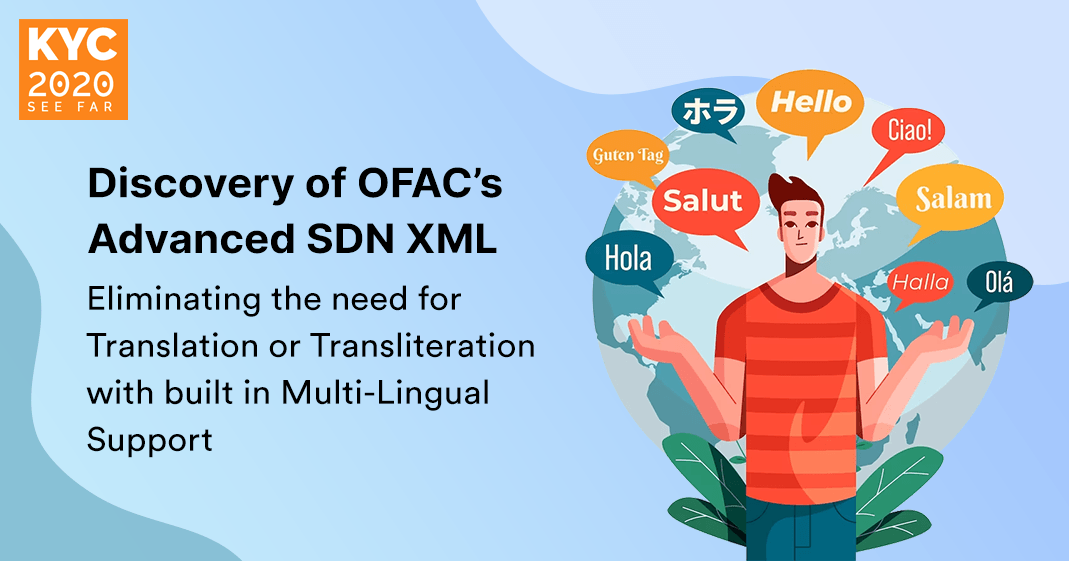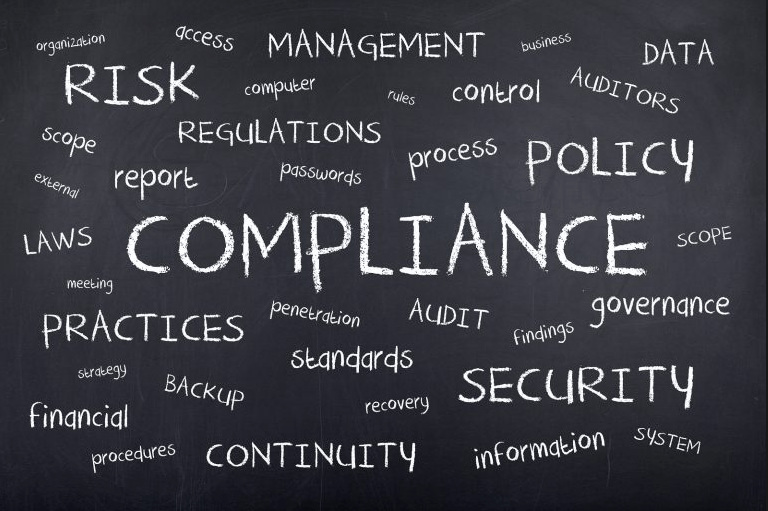Recently a middle eastern client had pushed our team to enhance our multi-language support related to sanctions screening of the Office of Foreign Assets Control’s (OFAC) Specially Designated Nationals and Blocked Persons (SDN) List where the client was using Arabic language script for screening the names of persons and entities.
While we at KYC2020 had already development multi-language support in our data and screening technology, our product team recognized that we had a great deal of dependency on the translation and transliteration APIs that were being used to standardize all source documents into a common language, i.e. English (Roman character set).
Having established English as the standardized language, we were not translating any source document to Arabic (or other non-roman script), hence if the source document DID NOT have the name in the original Arabic script, it would not be available in our data. This meant that clients searching in Arabic script matched 100% where source document had the name in the original Arabic script but relied on the translation APIs (from Google and such) to then fuzzy search in English. This was obviously not always precise. We realized that technology and the product team could not solve the problem and that’s when it showed up on my desk as the lead at KYC2020 in Global Regulatory Affairs.
This led me to relooking at the files available from the OFAC, a division of the U.S. Treasury Department to see if there was a solution. To my surprise, it turns out that in January 2015 they had already released a format of the SDN list that supported the jointly developed standard by the United Nations (U.N.) and the Wolfsberg Group of International Banks. Those efforts created a universal sanctions list format that was to be efficiently used by governments worldwide to enhances sanctions compliance screening in multiple languages.
And it turned out the OFAC’s SDN list is a shining example of the use of this new standard!
The OFAC’s Advanced SDN XML file supports multiple languages without the need for translation or transliteration and brings with it several advantages.
- Standardization: Using XML a schema allows for a consistent structure that facilitates the interpretation and automation of screening individuals, entities, vessels, and countries.
- Rich Data Points: The data contains information such as multiple aliases, addresses, IDs, and other sundry information to effectively evaluate the data.
- Linked Relationships: Relationships between entries provides insights into affiliations and connections to other individuals, entities, vessels and countries in the same file.
- Easily Updatable: The format allows for updates to be done in a seamless manner thus ensuring the latest information is captured and maintained with the most minimal amount of disruption to the previous version.
As mentioned in the January 2015 Treasury Department’s press release, the multi-lingual support provides enhancement and has implications into the following for entities who must screen this list.
- Wider Accessibility: Worldwide regulated entities can now screen against the SDN list without language barriers.
- Increased Accuracy: With more accurate language standards built in, there is less reliance on translations or transliterations which reduces the chances of misinterpretation. This ensures that the sanctions information remains accurate across all languages as provided.
- Efficiency: Direct multi-language support streamlines sanctions screening and allows those who operate in multiple countries or regions to reduce, and in many cases eliminating the need translation or transliteration.
From an Anti-Money Laundering (AML) perspective, this development to me is very monumental in many ways.
- Universal Compliance: Irrespective of the client’s operational language they can now ensure compliance with OFAC regulations as screens are now universal.
- Efficiencies: Without having to do translation or transliteration, screening becomes faster and more precise so that any language input will find the other equivalents.
- Enhanced Due Diligence: With entries available in various languages only one check is needed to cover the variants in usual systems that redo these names in other languages.
The addition of the Advanced SDN XML dataset in KYC2020’s screening toolbox enhances existing multi-language support, simplifies processes for international entities and fortifies the global stand against money laundering, terrorist financing, and other financial crimes.
Going forward, our team at KYC2020 will be looking to other sanctions lists that use this standard to do the same thing, so stay tuned, exciting times are coming!
Want to find out more? Click here and sign up for this and all the other offerings at KYC2020.








